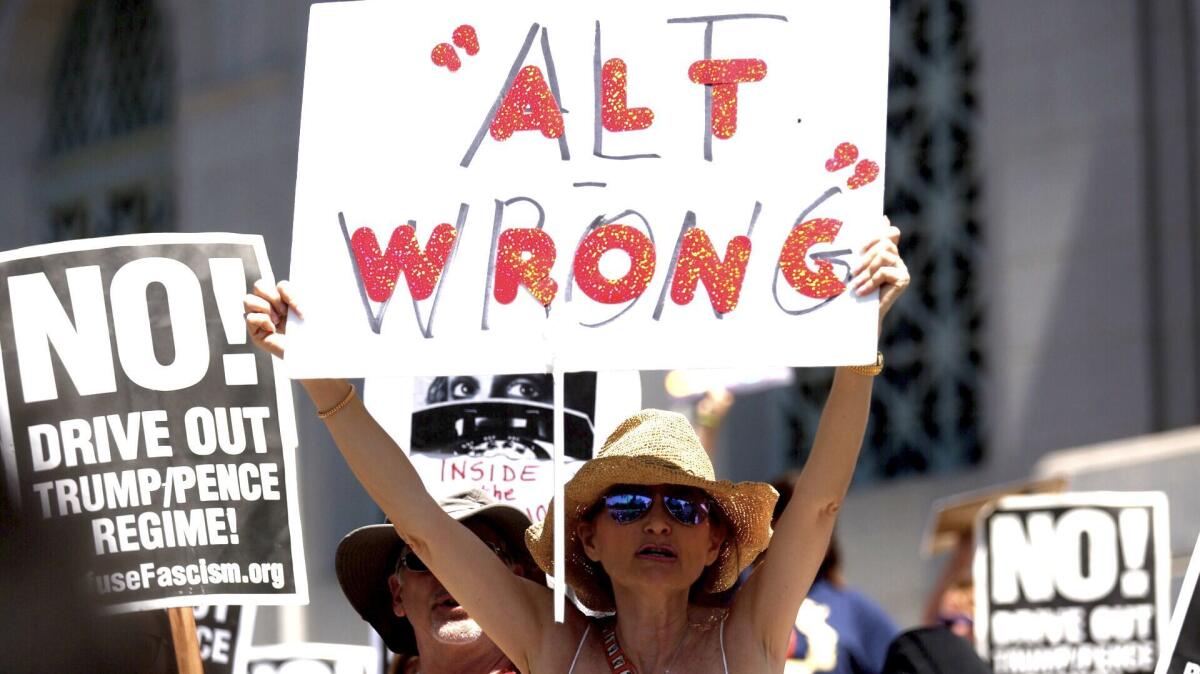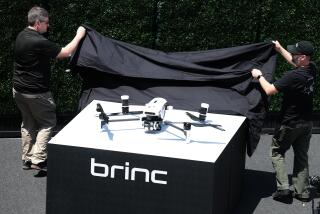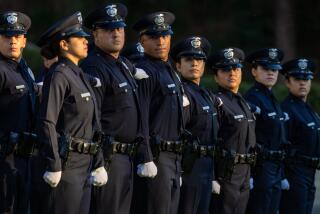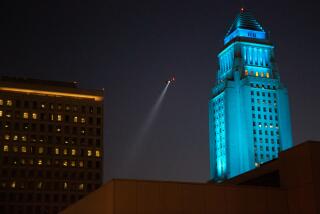Editorial: LAPD spied on anti-Trump activists. Can we still trust them with drones?

- Share via
The Los Angeles Police Department’s infiltration of an anti-Trump activist group is deeply troubling and brings to mind a long history of improper LAPD spying.
As The Times reported on July 19, police directed an informant to record meetings of the Los Angeles chapter of Refuse Fascism in October 2017. The four meetings were held at Echo Park United Methodist Church.
The LAPD is investigating the episode, but it is not clear why the department has to keep relearning the same lesson: Snooping on the public in order to gather intelligence is off-limits unless authorities have a reasonable belief that there is a crime afoot.
Without a credible tip or other evidence, monitoring a conversation or a meeting amounts to a fishing expedition at best. When directed at people of a particular political leaning, race or creed, it’s unlawful harassment.
The LAPD’s surveillance hall of shame includes infiltrating labor unions in the 1920s, the Black Panthers in the 1960s, Native American activists in the 1970s, protests and gatherings coinciding with the Democratic National Convention in 2000, and many other police operations whose purpose was to develop dossiers on individuals or undermine organizations but not to investigate or stop particular crimes.
In order to prevent such abuses, the LAPD has adopted protocols that require approval from a designated member of the civilian Police Commission before using an undercover informant. That didn’t happen in the case of the Refuse Fascism infiltration, ostensibly because it was part of an ongoing criminal investigation, according to one unnamed source. The department has offered no evidence that it had reason to believe a crime was likely, but in any case, public confidence in the department is best served by erring more clearly in favor of seeking civilian approval.
In policing, approvals and disclosures are not mere niceties. For example, the department developed a meticulous protocol for deploying drones after serious pushback from critics who argued that the airborne cameras would almost certainly be used to spy on private citizens. No, LAPD leaders argued, the deployment guidelines, and follow-up reports to the commission and the public, would prevent that. The Times backed the drone pilot program because of the guidelines, and the police commission ultimately voted to approve it in October 2017 — just as the department was spying on Refuse Fascism.
What does LAPD snooping have to do with drones? Nothing, if police observe their public protection protocols in letter and spirit. Everything, if they don’t.
It’s worth wondering whether the commission’s confidence in the LAPD’s drone protocols would have been so high if the members had known of the spying going on at the same time at Echo Park United Methodist Church. It’s worth wondering whether their vote on the pilot program would have gone the same way — and whether, in the wake of the spying revelation, they will be quite so trusting when a new set of guidelines for a permanent drone program comes before them later this summer.
More to Read
A cure for the common opinion
Get thought-provoking perspectives with our weekly newsletter.
You may occasionally receive promotional content from the Los Angeles Times.










